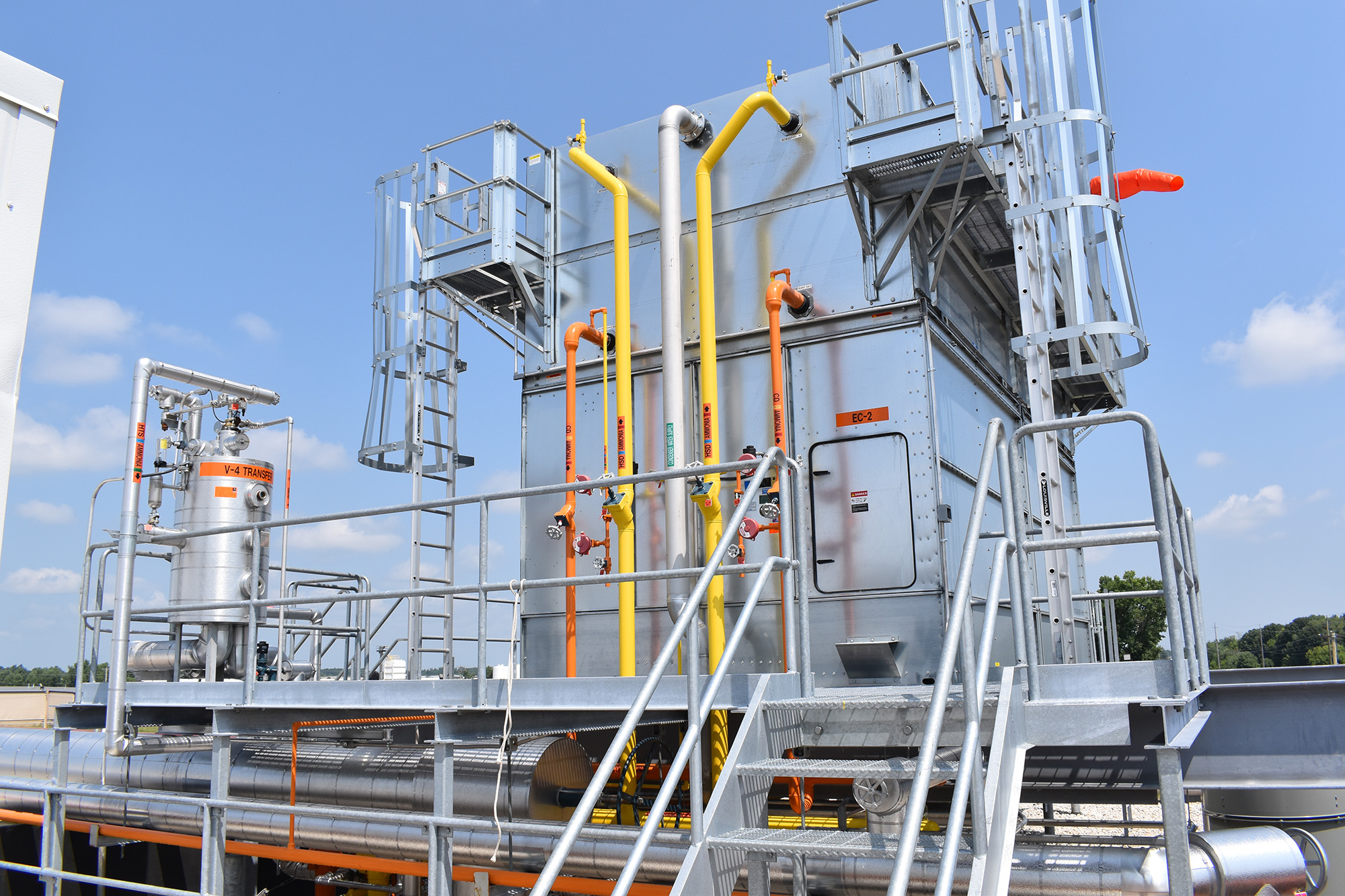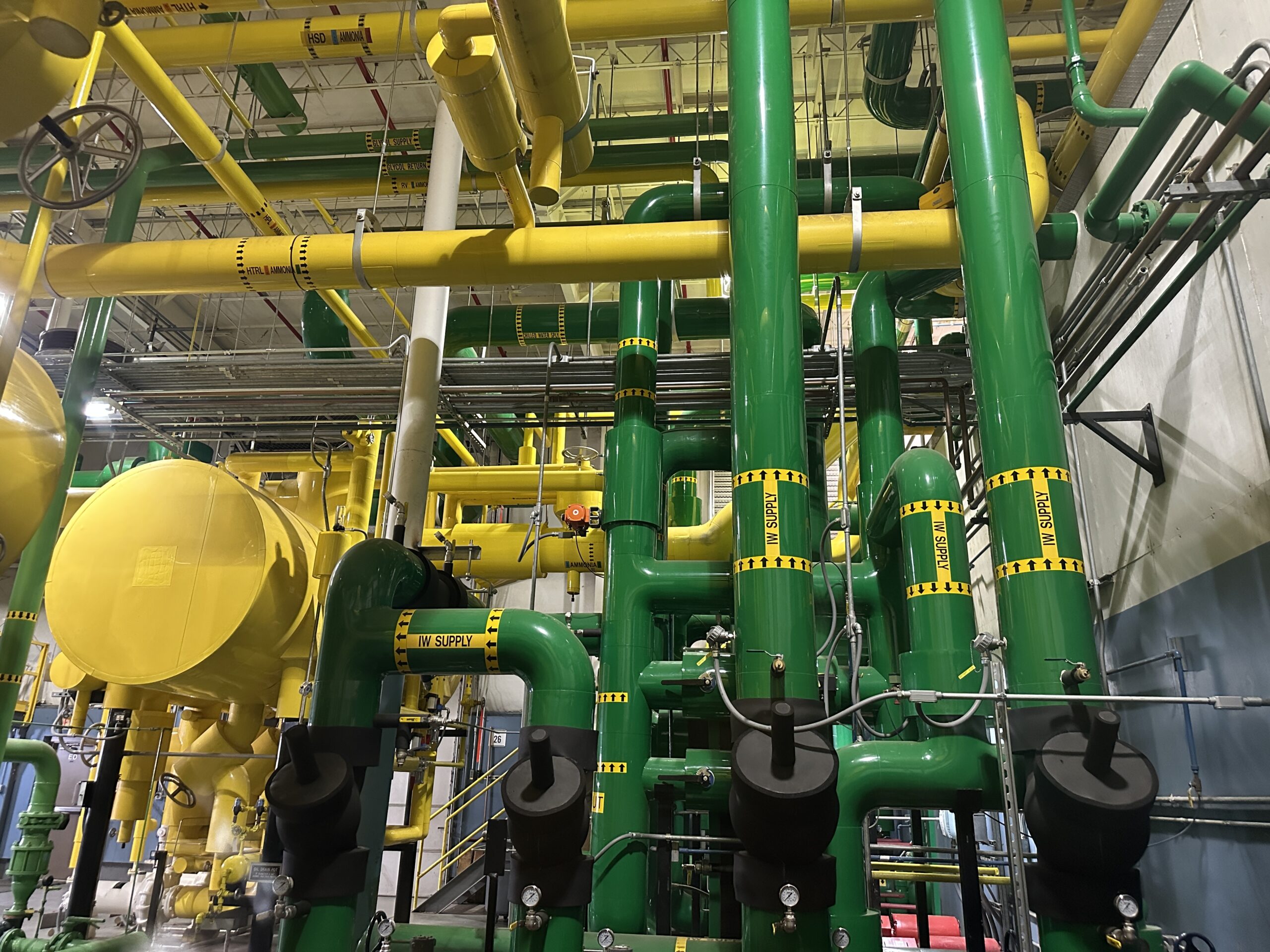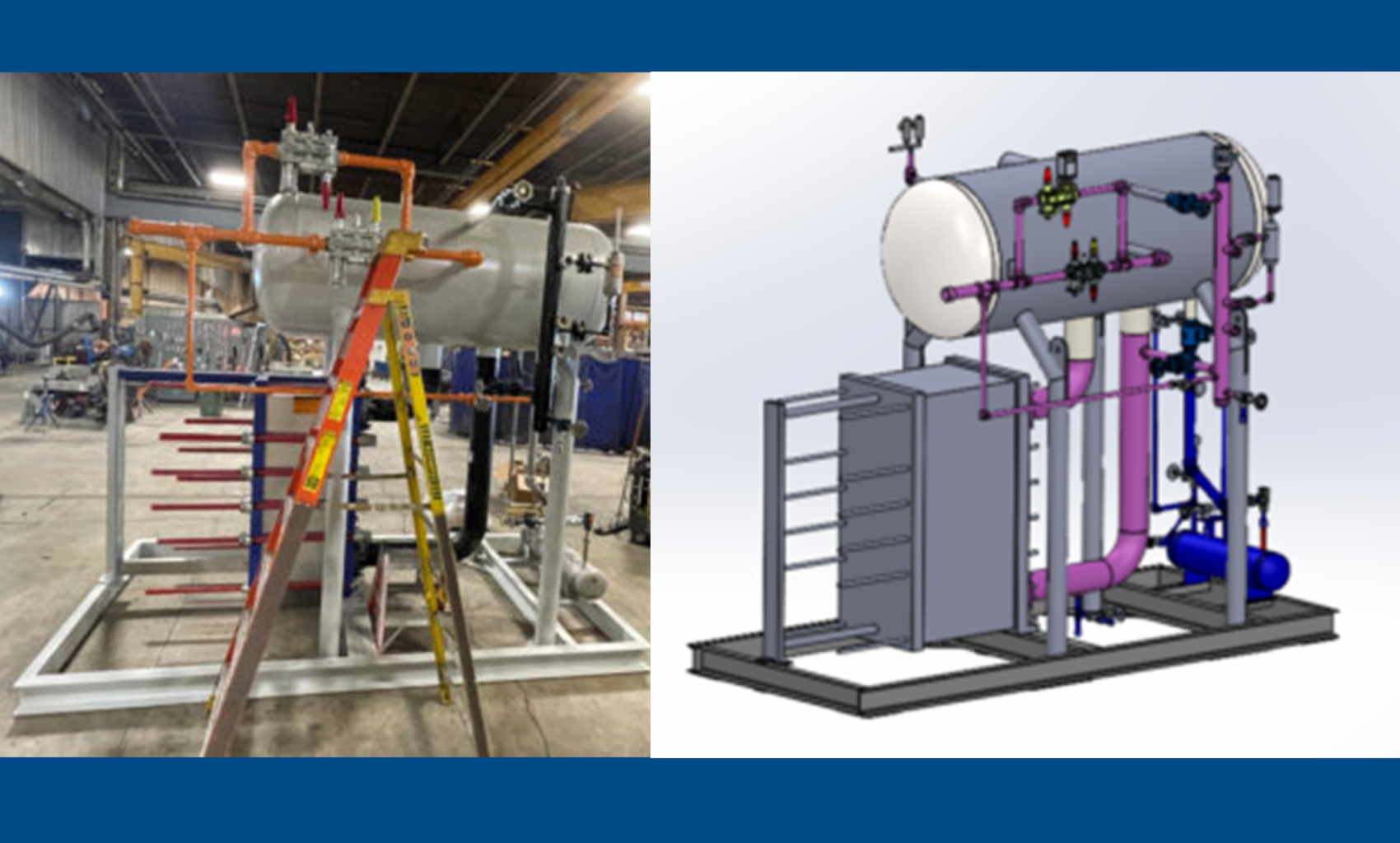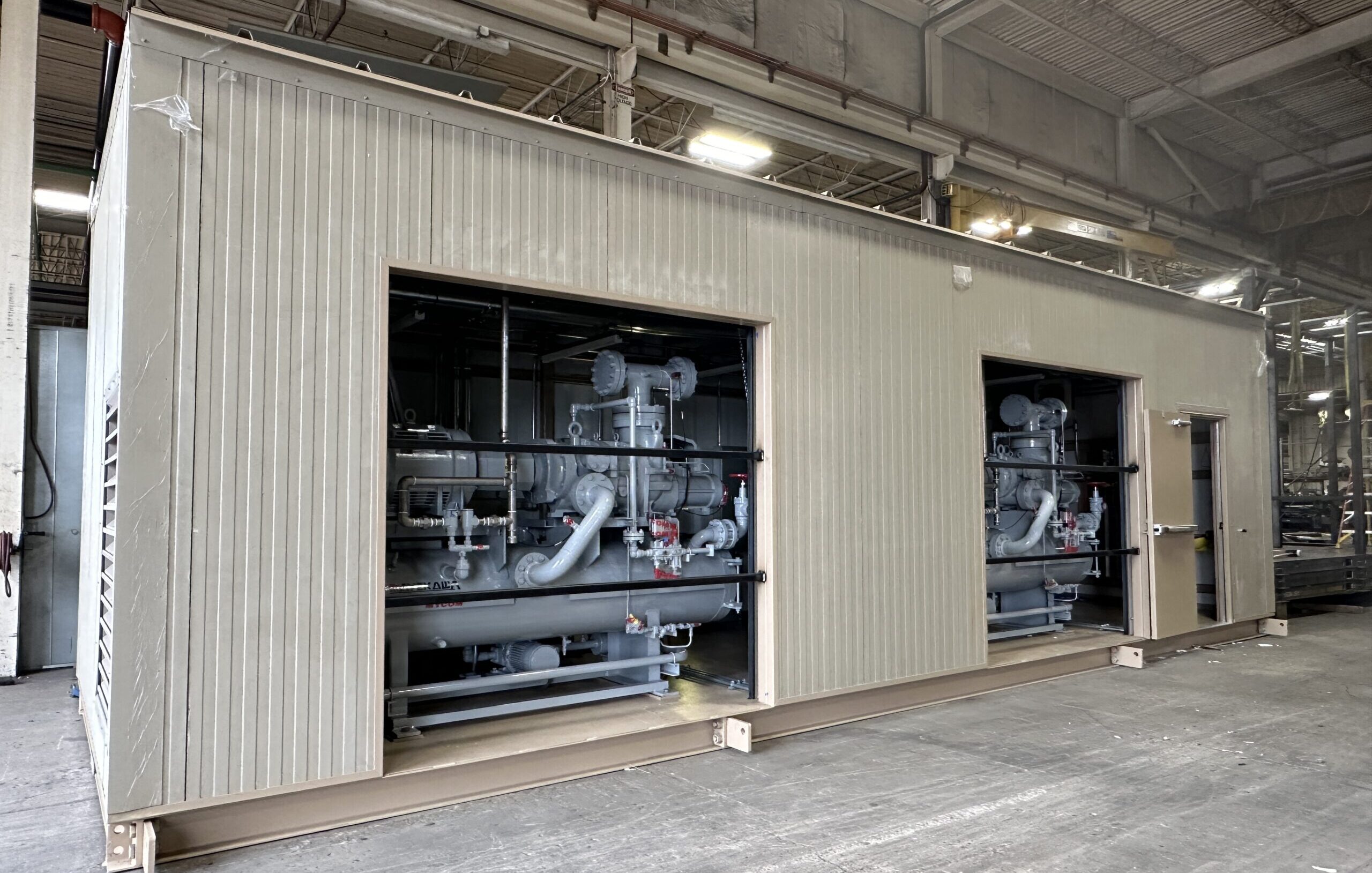Beyond fulfilling an essential role for your business, your industrial refrigeration system is comprised of complex machinery that requires routine upkeep to perform consistently. When issues arise, they can be stressful, costly, and directly impact all your critical systems.
Below are tips for avoiding industrial refrigeration system issues, preserving uptime, and protecting your investment long-term. Continue reading to learn about common refrigeration issues, what they mean, and how to troubleshoot them, as well as preventive maintenance tips.
Common Refrigeration Issues: What They Mean and How to Troubleshoot Them
Over our multi-decade history, we’ve worked with thousands of industrial refrigeration systems and resolved wide-ranging issues. However, a handful of problems happen more often than others. Here are the most common issues you might experience, their underlying meanings, and how to mitigate them.
High Head Pressure
What it means: High head pressure is usually caused by scaled or dirty condenser coils, fans that are not working properly, or inadequate water flow. There may also be non-condensables in the system. This will regularly happen when it’s warm outside, as heat elevates system discharge pressure. Left unchecked, high head pressure will increase suction pressure, your compressor’s compression ratio, system temperature, and energy costs.
How to troubleshoot it:
- Check condenser coils for scale and dirt, which can “insulate” the coil and prevent heat transfer.
- Confirm water flow on evaporative condensers. There should be an even spray pattern from the water nozzles with adequate coverage. In some cases, nozzles may need to be replaced.
- Note the level of non-condensables in the system. Head pressure and condenser drain temperature should match what’s on the pressure/temperature chart. For instance, if head pressure is 180 PSIG, your condenser drain temperature should be around 95°F. If your head pressure is 180 PSIG and your condenser drain temp is 80°F, this would indicate you have about 12-15 PSIG of non-condensables in your system.
When to call Bassett Mechanical: You have a high level of non-condensables in your system.
Undiagnosable Equipment Issues
What it means: Ongoing but undiagnosable equipment issues can be a symptom of overfeeding evaporators, defrost cycling being set up incorrectly, and vessel controls failing to respond. This liquid overfeed can cause flood back and a loss of liquid to other equipment. Additionally, inadequate defrosting can lead to excessive ice buildup and a surge in energy costs.
How to troubleshoot it:
- Observe evaporator performance. Watch the liquid solenoid or TXV cycle on temperature; a steady, consistent liquid flow is desirable. Check hand expansion valves for proper opening. Typically, an HEV is set to one to two turns open as a starting point. Opening too far can cause liquid to stack in the coil and lead to flood back issues.
- Observe defrost cycles. A rule of thumb is 5-10 minutes of pump downtime, 15-30 minutes of hot gas time, and 5-10 minutes of bleed time. The back pressure of regulators is typically set at 65-75 PSIG. Setting them higher can cause the gas to condense in the coil, inhibiting the heat transfer to the coil and preventing ice from melting properly.
When to call Bassett Mechanical: Your system is experiencing performance issues during defrost cycles or you suspect liquid overfeed at your evaporators.
Constraints are Preventing You from Performing Routine Maintenance In-House
What it means: We know your team is busy. Refrigeration is crucial for your business, but it’s not your focus. When your staff is concentrated elsewhere or you’re short-staffed, in-house refrigeration technicians will be understandably pressed for time and may not have the capacity to stay up-to-speed on OEM recommendations.
It can also be difficult to spot all failures during preventive maintenance, even when you have the time. A lack of routine in-house maintenance means you can miss essential steps to sustaining your system’s performance and longevity; lubrication intervals, annual oil filter swaps, and belt changes may be skipped, to the detriment of your machinery.
How to troubleshoot it:
- Determine and stick to an annual date to change condenser belts and check sheave alignment, ideally before warmer months of the year.
- Calibrate pressure and temperature sensors annually. Systems can struggle when they don’t read the correct information.
When to call Bassett Mechanical: You have questions or OEM recommendations that are confusing.
Your System is Unable to Maintain Proper Temperature
What it means: You might have dirty condenser or evaporator coils, low ammonia charge compressor operation issues, valve operation issues, and heat infiltrating into the building.
How to troubleshoot it:
- Make sure your system is set to the desired temperature.
- Check evaporator fans for operation and airflow direction.
- Ensure the door closes and seals properly.
- Verify the amount of liquid in the receiver during high-load conditions.
When to call Bassett Mechanical: None of these troubleshooting methods work and temperature control remains a problem.
Signs Your Refrigeration System Needs Service or May Be Failing
Regular service is always a good idea, but it’s time to connect with your industrial refrigeration maintenance professionals if you are experiencing issues like these (in addition to the common issues listed above):
- Your engine system shuts down consistently
- You deal with frequent emergency repairs
- You haven’t performed preventive maintenance in over a year
- Your energy use has spiked without an explainable cause
Preventive Maintenance Tips to Avoid Industrial Refrigeration Issues
Preventive maintenance is an incredibly effective way to maximize energy efficiency, ensure system reliability, protect your investment, and keep your business running smoothly. The following is a checklist of items your program should include to be successful:
- Ammonia-focused inspections and planning (more info below)
- Refrigeration vibration analysis
- Complete oil analysis
- Filter management
- Mechanical integrity inspections (IIAR 6 Appendix B/B109)
- Compliance monitoring (more info below)
- Documentation of your equipment’s temperatures and pressures daily
Ammonia Response
As you know, ammonia releases can be damaging to health or even fatal. The right preventive maintenance—including a documented ammonia response plan—is essential to your facility’s safety and successful operation. Bassett Mechanical can help with:
- Yearly ammonia system safety inspections
- Consultations to create a crisis action plan
- Temperature and sensor calibration
- Compressor alignment verification
- Compressor maintenance
- Valve maintenance
- E-stop/emergency ventilation/high-level shutdown testing
- Ammonia sensor calibration
- Energy balance calculations
Compliance Monitoring
An essential part of ensuring regulatory compliance and a safe work environment is having a partner who understands all the rules and how to adhere to them. We’ll help you meet the following compliance standards:
- RAGAGEP and the latest industry standards for design, installation, and maintenance
- PSM/RMP/ARM/IIAR standards for ammonia refrigeration systems
- RMP hazard assessment
- Annual SOP review
- Annual Tier 2 reporting
- 3-year compliance audits
- 5-year mechanical integrity audits
- 5-year relief valve replacement
- 5-year PHA revalidation
Partner with Bassett Mechanical for Complete Refrigeration Maintenance Services
Working with a qualified, experienced industrial refrigeration partner means you can rely on experts who know your systems best. Bassett Mechanical’s team will meet and exceed all your business’s industrial refrigeration preventive maintenance requirements.
We’re an established, industry-leading industrial refrigeration, HVAC, plumbing, and control systems partner. You can customize your preventive maintenance program with services like controls, compliance, mechanical components, parts, labor, and more. Bassett Mechanical’s over 100 certified technicians can always be relied upon, 24/7, and we’re the only independent contract service provider in the State of Wisconsin with emergency ammonia response.
Get in touch with us today to start developing your comprehensive industrial refrigeration service plan. We can’t wait to make you a customer for life.




